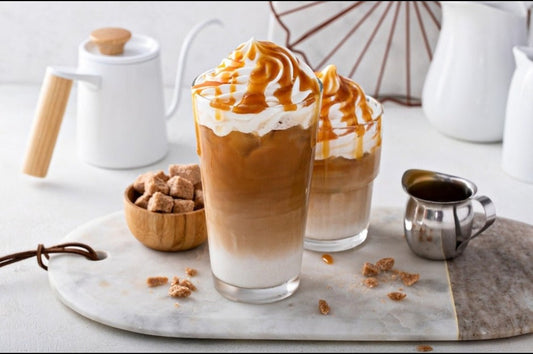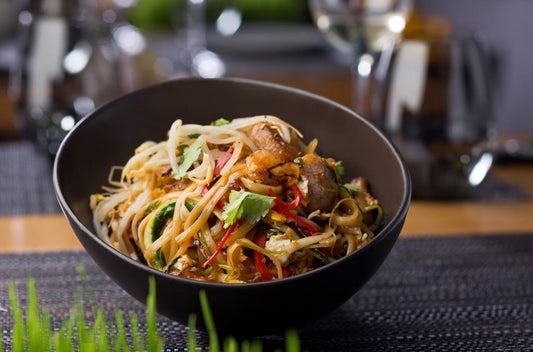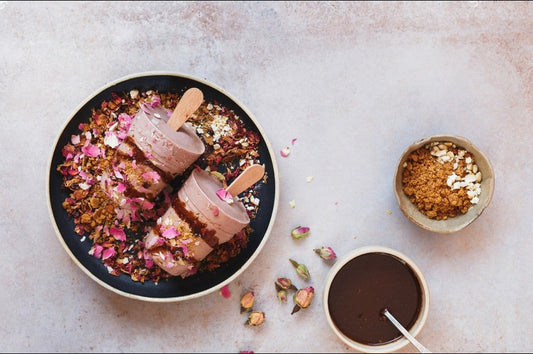
Oddy UniWraps vs. Silicone Mats vs. Aluminum Foil: Which is Best for Your Kitchen?
When it comes to wrapping, baking, and storing food, we're often faced with the classic trio: Oddy UniWraps, Silicone Mats, and Aluminum Foil. But which one truly reigns supreme for your needs? Let's dive into the ultimate kitchen showdown!
Round 1: Versatility & Usage
-
Aluminum Foil: The veteran! It's been a kitchen staple for decades, used for wrapping leftovers, lining baking trays, grilling, and even some makeshift cleaning. However, its single-use nature is becoming a growing concern.
-
Silicone Mats: The eco-conscious contender! Primarily known for baking, these non-stick wonders can withstand high temperatures and are fantastic for cookies, roasting vegetables, and even kneading dough. Their reusability is a major plus.
-
Oddy UniWraps: The flexible newcomer! Made from food-grade paper with a special coating, UniWraps aim to be an all-rounder. They're great for wrapping rotis, sandwiches, and snacks, lining microwave plates, and even gentle baking. Their unique selling point is breathability and being a more sustainable alternative to foil.
Round 2: Eco-Friendliness
-
Aluminum Foil: Not the greenest choice. While recyclable, the energy-intensive production process and its frequent single-use make it environmentally taxing.
-
Silicone Mats: A clear winner here! Their durability and reusability significantly reduce waste compared to single-use options. A one-time investment for long-term use.
-
Oddy UniWraps: A step in the right direction! Being paper-based, they are more biodegradable than aluminum foil. They offer a more sustainable single-use option for many everyday wrapping needs.
Round 3: Heat Resistance & Cooking
-
Aluminum Foil: Performs well under high heat, making it ideal for grilling and lining ovens for messy dishes. However, it can react with acidic foods.
-
Silicone Mats: Excellent for oven use up to a certain temperature (check manufacturer specifications). Their non-stick surface ensures easy food release, but they aren't suitable for direct flame or very high temperatures like grilling.
-
Oddy UniWraps: Designed for gentle heating in microwaves and ovens up to a specific temperature. They are not suitable for high-heat applications like grilling or direct contact with heating elements. They excel at keeping rotis soft and warm without getting soggy, a common issue with foil.
Round 4: Cost-Effectiveness
-
Aluminum Foil: Relatively inexpensive initially, but the cost adds up with frequent single use.
-
Silicone Mats: Higher upfront cost but offer long-term savings due to their reusability.
-
Oddy UniWraps: Priced competitively as a convenient and more sustainable single-use option.
The Verdict: Choosing Your Kitchen Champion
There's no single "best" option; it depends entirely on your specific needs and priorities in your Noida kitchen:
-
For High-Heat Cooking & Tough Tasks: Aluminum Foil still holds its ground for grilling and very high oven temperatures, though consider its environmental impact.
-
For Eco-Conscious Baking & Reusability: Silicone Mats are the clear champion for their non-stick properties and long-term sustainability.
-
For Everyday Wrapping & Gentle Heating: Oddy UniWraps emerge as a strong contender, offering a more breathable and sustainable alternative for rotis, sandwiches, and microwave use.
Ultimately, a well-equipped and mindful kitchen might benefit from having all three on hand, strategically using each for its strengths. By understanding the pros and cons of Oddy UniWraps, Silicone Mats, and Aluminum Foil, you can make informed choices that align with your cooking style, environmental values, and budget. So, what's your kitchen wrap of choice today?
Continue reading
View all-

The Twin Temptation: Bakers Frappe Powder for Your Cafe-at-Home Moments
Are you tired of spending a fortune at coffee shops to get that perfect frappe? What if you could recreate that creamy, smooth, and delicious experience right in your own...
The Twin Temptation: Bakers Frappe Powder for Your Cafe-at-Home Moments
Are you tired of spending a fortune at coffee shops to get that perfect frappe? What if you could recreate that creamy, smooth, and delicious experience right in your own...
-

Spice Up Your Plate: The Golden Touch of Puress Cold Pressed Mustard Oil!
Puress Cold Pressed Mustard Oil can transform a dish with its unique flavor profile. Try it now!
Spice Up Your Plate: The Golden Touch of Puress Cold Pressed Mustard Oil!
Puress Cold Pressed Mustard Oil can transform a dish with its unique flavor profile. Try it now!
-





